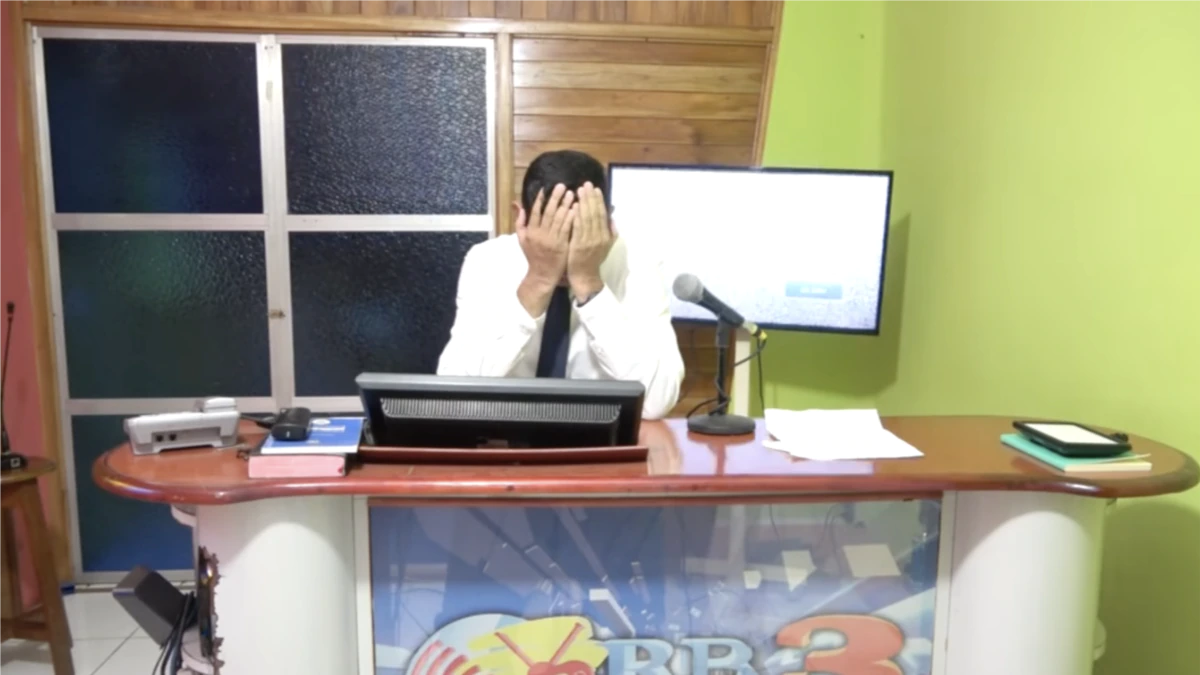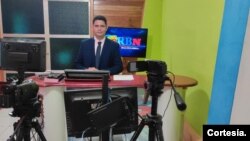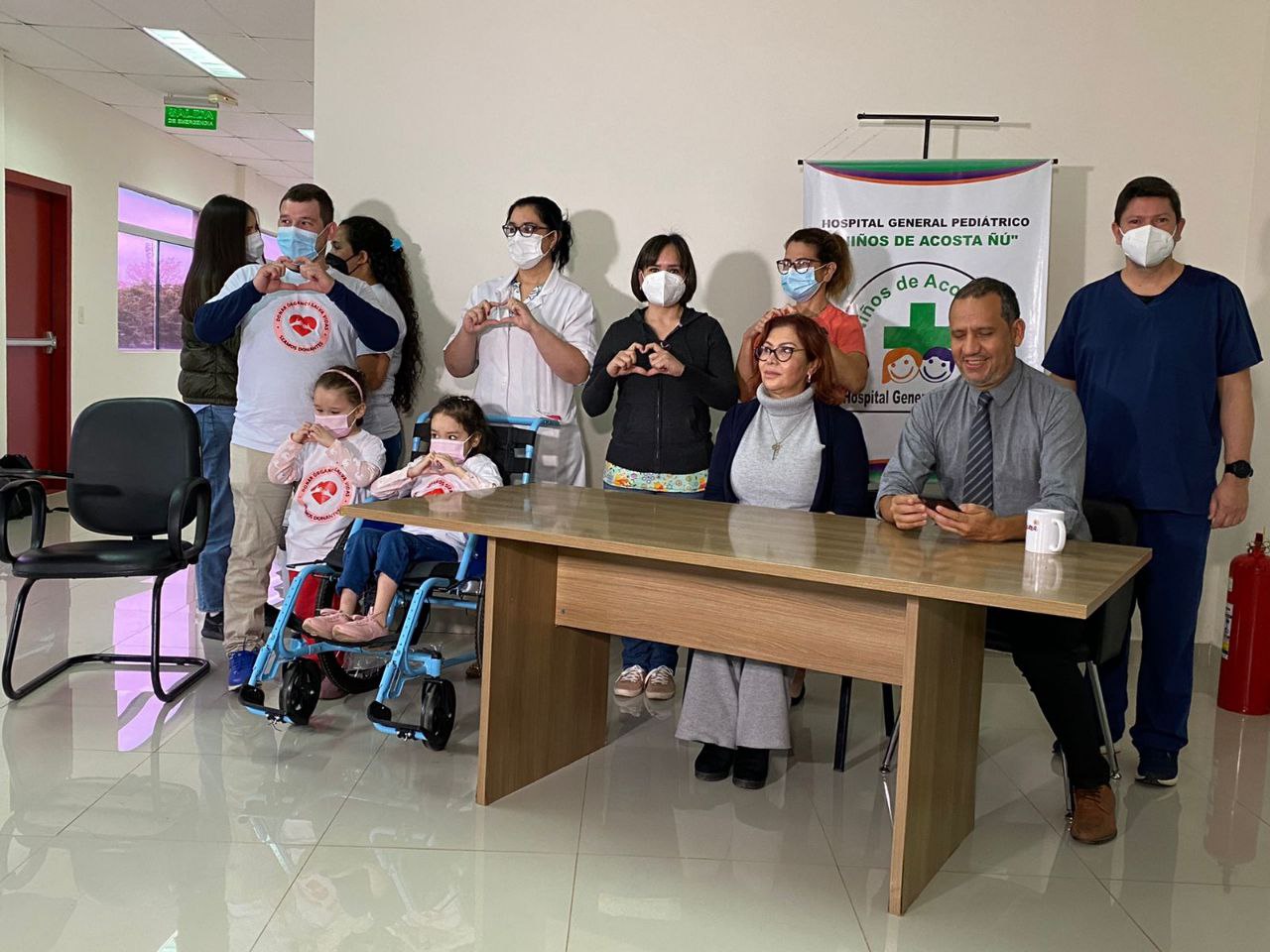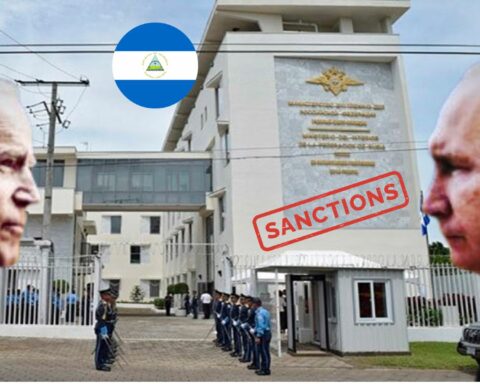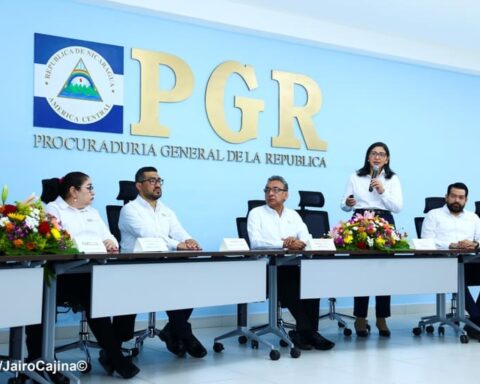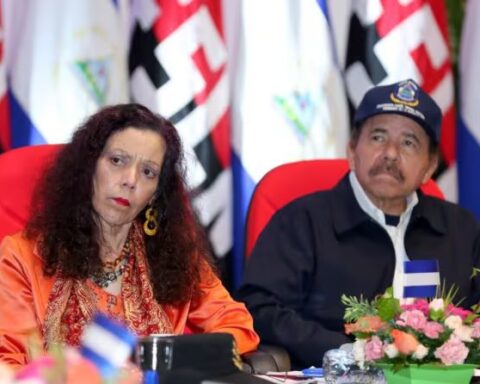Nicaraguan journalist David Mendoza, founder and owner of Canal RB3, He never thought that just 24 hours after reporting that the government of Daniel Ortega had canceled five radio stations belonging to the Catholic Church, the next media outlet to be shut down would be his, founded more than 18 years ago.
Mendoza went “viral” on social networks in Nicaragua this week by breaking down in tears after announcing the measure ordered by the Nicaraguan Institute of Telecommunications (TELCOR), in which it ordered the cessation of local channel RB3, located in Río Blanco, Matagalpa – about 130 kilometers northeast of Managua.
“Suddenly, I was going to put on the programming from the afternoon when I see that the channel turns blue. It was the hardest thing to see that the channel is in blue. Change to the rest of the channels, all were working. I said: ‘maybe they are making some adjustment‘. 10 minutes passed, I felt like something was wrong. I called one of the guys from the cable company:
“Who’s at the plant? Are they swinging something from the canal?”
“No,” he tells me. They haven’t called you?
-Nope. What happened?
—There is a problem with your channel. Better call the owner—
I called him and he just answered me. He told me:
“David, I’m so sorry. You know that I have always supported you. I’ve been with your channel for 18 years at the cable company. It is the best channel of all the programming that I have and with the pain of my soul, I already send you the notification that they sent to the company at around 10 in the morning”.
According to Mendoza, the document was a notification from Telcor, where it was ordered that the RB3 channel should immediately withdraw from the cable company’s programming.
The reporter points out that the decision meant “a hard blow” for him because of the effort with which he started his local channel, which little by little became a voice for the community in the “dairy zone of the country.”
“It was a dream—I always tell people—a dream that God made a reality for me,” the journalist tells the Voice of America.
A story of overcoming
Mendoza was born into extreme poverty in Río Blanco. For that reason, it was difficult for him to go to school and instead he sold on the streets since he was a child.
“I remember that when I was a child they closed the doors to me in the houses when I started to watch television, however I never thought that some time later I would found my own channel, the only thing I said was that I was going to overcome myself with honesty and effort.”
Mendoza is the youngest of 12 brothers who were overwhelmed by the economic situation of the house. For this reason, since he was young, he looked for jobs in different companies until he arrived at a local cable company, where he began working as a security guard.
“I arrived as a security guard at that cable company when I was 16 years old. I remember that the only thing I carried or presented was the identity card. The only thing they told me was:
– What document does he bring?
—Only my identity card and the desire to work.
At that time, the young man had applied for his identity card and two weeks later he began looking for a job. “I get my ID, I come to that company, they gave me the opportunity to be a security guard,” he says.
Over the months, Mendoza was given the position of technical assistant in that company. Years later he learned what the technician did and once he resigned, the owner of the company made him an offer.
“He told me: ‘David, you are in charge of the technical area. It is your responsibility and you are going to take forward everything that the company needs’. Then I became the head of the technical area. It was there when we also started to include a local channel with music, movies”, he relates.
Then that young worker resigned from the area where he was and dedicated himself to communication, and it was until then that he began to study. In fact, just a few days ago he had received his degree as a journalist at the Juan Pablo II University in Matagalpa.
“I did not study as a child and while the channel was in process I was also preparing myself because as a child I did not study, we had very low economic resources and while the channel was in process, we were in the process of studying.
Then he requested permission from the owner of the cable company to give him the opportunity to establish a local channel, which did not exist in Río Blanco.
“He told me: do what you want. In any case, you are the one in charge of it, you watch what you do. He gave me all the confidence, so I told him:
—Give me a chance in that project, to see if it works.
-No problem.
Later, with his savings, the young man managed to buy a piece of land next to the company where he later built his house, and where he set up the channel studio.
The living room of the house was the set for the channel, then it was the dining room and everything in a corner of the living room of the house, until it went uphill.
“Then I even managed to build my own TV studio and for all those years no one ever said anything to us. The news always came out and they never told us anything. Until now. It has been very hard for everyone who has had a media outlet here in Nicaragua,” he added.
The local channel’s programming was 24 hours. “It never went out.” About three people worked and with the little publicity they got they got ahead.
Now the journalist explains that they will continue reporting on social networks about what happens in the town where he lives.
“I told people that I was going to follow on my social networks. We are going to try to continue this project on social networks, but we do follow a process of seeing how we assimilate this hard blow and then we are going to reinvent what we do”.
The Inter-American Press Association (IAPA) denounced this Wednesday that the government of President Daniel Ortega had created “a new information desert in the interior of the country,” after recently canceling at least 11 local radio stations and four cable TV channels.
The organization pointed out that this is “part of a campaign that seeks to eliminate all vestiges of an independent press and represents a new advance on freedom of worship and thought in that nation.”
And so it was the case of this local environment where the residents already feel the absence.
“Since the villagers looked at the publication on social networks, the phone has not stopped with hundreds of messages since yesterday (Wednesday) night. It was 11 at night, I slept little thinking about my dream that, God first, one day it will return… I am going to fight so that they can see that brand they are seeing on the screen again: RB3, the channel from the dairy zone” .
Connect with the Voice of America! Subscribe to our channel Youtube and turn on notifications, or follow us on social networks: Facebook, Twitter and Instagram

